We can present Fragments of the Past in preview because its author and illustrator, Massimiliano Haematinon Nigro, made us discover it directly. It is a varied and articulated project that also includes a tabletop role-playing game to complete a series of illustrated books.
Fragments of the Past was born with a very ambitious goal. It wants to be a fantasy rewriting of the ancient Mediterranean, takings its cues from the history and cultures that have followed one another on the coasts of that sea but recreating a new world to admire, to read and to play. Its author is, indeed, a concept artist with collaborations ranging from cinema to books. He defines himself first as a “world-builder”.
The Mediterranean Sea Deserves It

Since I was a child, I have always been a great lover of classical mythology and of ancient Greece and its immense and fabulous culture. In roleplaying, as well as in cinema or television, the classical Mediterranean setting never had a tradition strong as the medieval fantasy of Tolkien & co. The two editions of Agon and Lex Arcana come to my mind, then Mythos, Runequest and the Mythic Odysseys of Theros setting for D&D5e. There will certainly be others too, but they can’t be compared with all the material published for knights, dragons, elves and castles.
Yet incredible places overlook the Mediterranean Sea, and fascinating and incredibly rich cultures have emerged by its lands throughout history. The places revived by the penultimate chapter of Assassin’s Creed, Odyssey, made me fall in love and I don’t think I was the only one who was fascinated. So I admit that I’m taking sides in favor of a new world inspiring a new fantasy canon based on classical Mediterranean culture – a new Middle Earth, daring the comparison.
The World of Fragments of the Past
Among the many positive aspects of the Fragments of the Past quickstart (which I will talk about further) there is certainly talented and evocative writing. Not only the manual is well written, but the text effectively conveys the author’s thoughts in fewer, spare sentences.
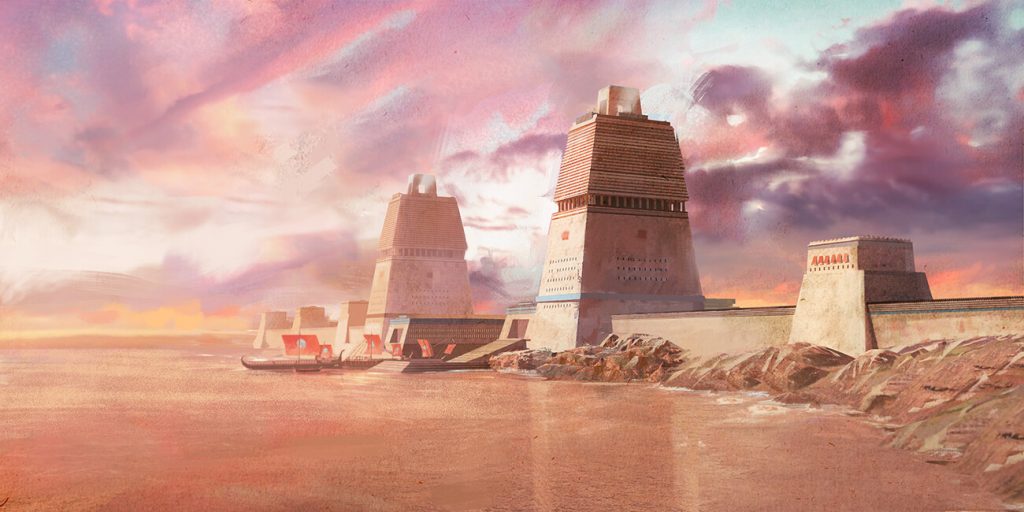
So, as the lazy man I am, what better words to describe the setting than the same ones used by the author himself?
Fragments of the Past’ is a narrative role-playing game based on a homonymous series of tales and legends that evoke the style and themes of the Homeric epics, ancient tragedies and more generally of the great cultural world of the Mediterranean. You will be the protagonist of an epic poem sung among the red fires of a banquet and you will play the role of awe-inspiring characters whose divine nature is manifested in the breadth of their passions, in the wildness of their instincts or greed of their ambitions.
You will live in a world marked by centuries-old maledictions, merciless duels and intricate rituals. Feel the clash of bronze weapons and shields, your hand exhausted by the heavy spear. There is a smell of resin, algae, hot limestone, blood, sweat and animal fat from the sacrificial pyres. To your left – the roar of the deep blue sea furrowed by distant ships.
Massimiliano Nigro, author of Fragments of the Past
I couldn’t have said it better.
Art and Layout
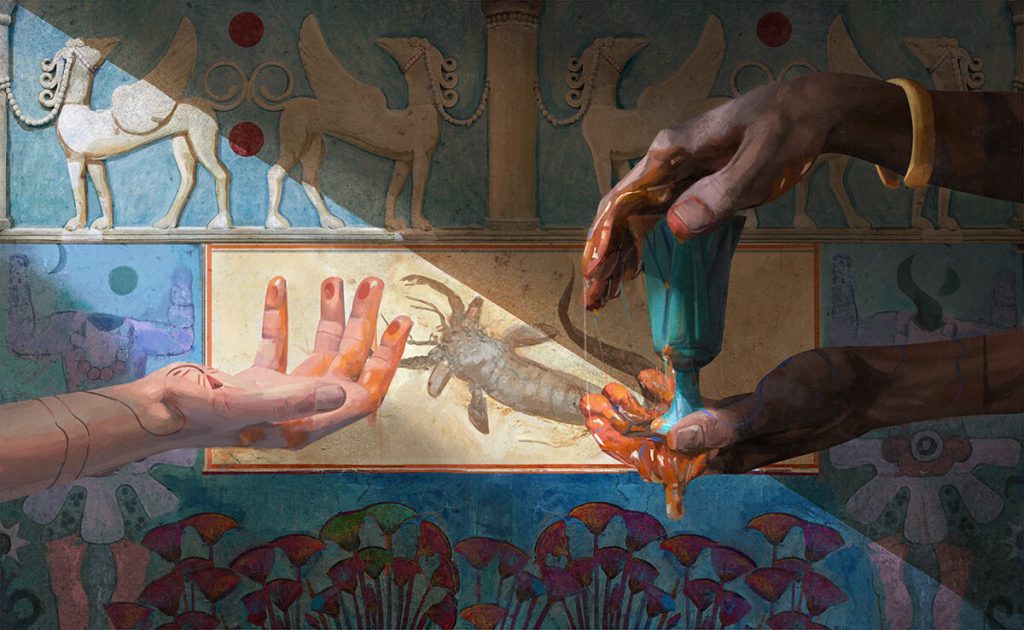
The author is an artist and you can see it. He is very talented and you feel how much he loves the world he created. I very much envy his ability, not only innate but I think diligently trained, to transform what he has in his mind and heart into visual art. The images in this preview and his Artstation profile speak for themselves. On one hand there are splendid illustrations depicting landscapes, settlements and buildings, on the other hand there are accurate reproductions of objects and drawings with the style typical of classical cultures.
Even the layout, which initially is the classic two-column, is enhanced by an excellent aesthetic sense that streamlines the text and surrounds it with beautiful colors and evocative illustrations. It is a pleasure to browse and read the pages.
The only item I would have made a little less artistic and a little more practical is the character sheet, but it is very beautiful, too.
Fragments of the Past : a Preview of the Quickstart
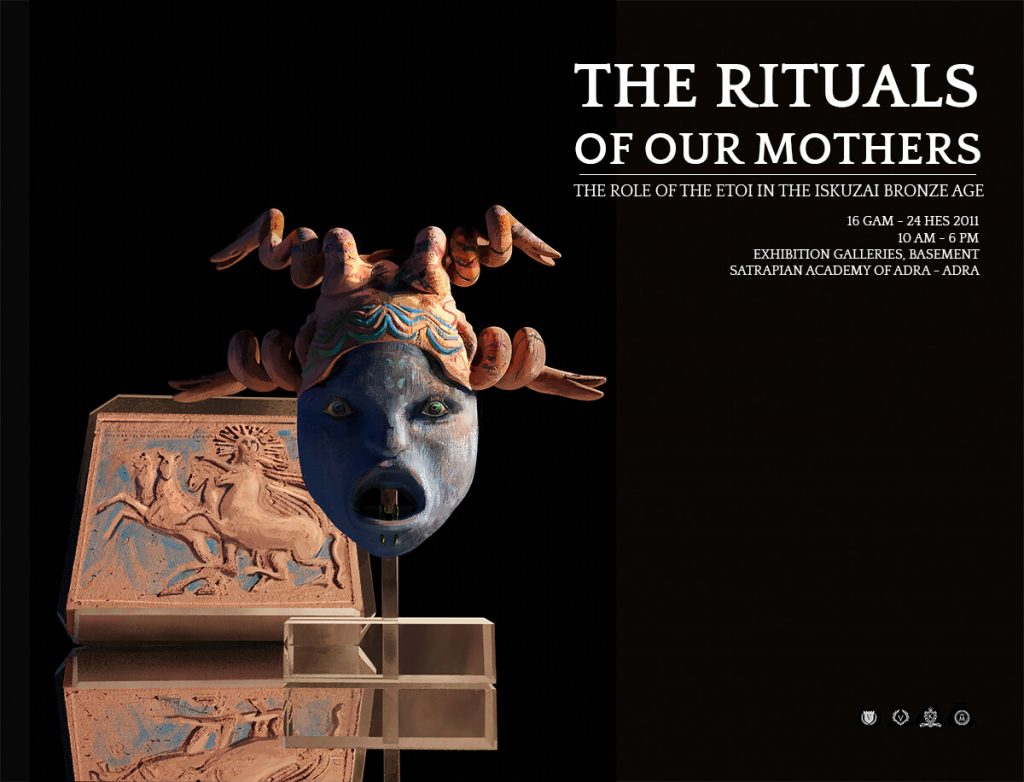
The quickstart is almost a manual in itself, both for the length (110 pages) and, above all, for the quality. It’s self-published and it’s available free in PDF version if you subscribe to the newsletter.
The pages are loaded with many illustrations and less text, to make them more pleasant, so the actual content is not as great as the 110 page count would otherwise indicate.
After an extremely good prologue, the first part of the quickstart introduces the game, starting with the world and society but, more importantly, with some elements that directly affect game play. Hence, the Talismans, powerful objects of legend, and the two different types of stories: the Tragedies and the Epic Cycles. There are explanations and examples that smell of classical epic, making it clear that are the references the narrator must look to be inspired.
The second section presents the continent of Askedonia, the game world, in a little more detail. The historical elements are mixed and new peoples and a new history are born. I very much appreciated that the cosmogony is not explained, but it is told what men and myths tell instead. Perfectly centered on the theme
The Protagonists of Ancient Poems
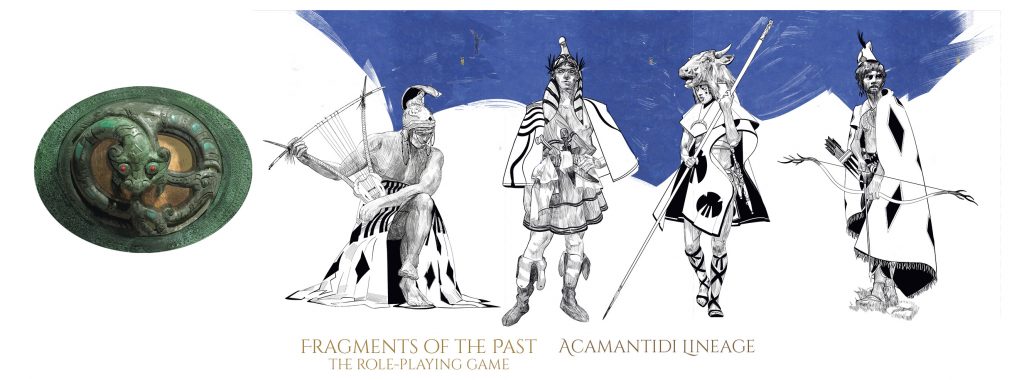
Finally the quickstart, with the third section, runs deep into the game and introduces the characters. It is a narrative game, so the numerical component is present but it takes a step back to enhance the narration around the characters.
Heroes are defined by four Attributes, which have the evocative names of Soma, Sarx, Psyche and Pneuma. Their origin and their lineage are fundamental, in order to shape them. There are Gifts, connections with the divine, and Passions, the main causes of the torment of their existence or the conflict that tears them apart, and that is the engine of their story and their actions. Finally, there are more generic Descriptors from which to choose those traits that will define them narratively and affect them mechanically.
Born to Create Stories
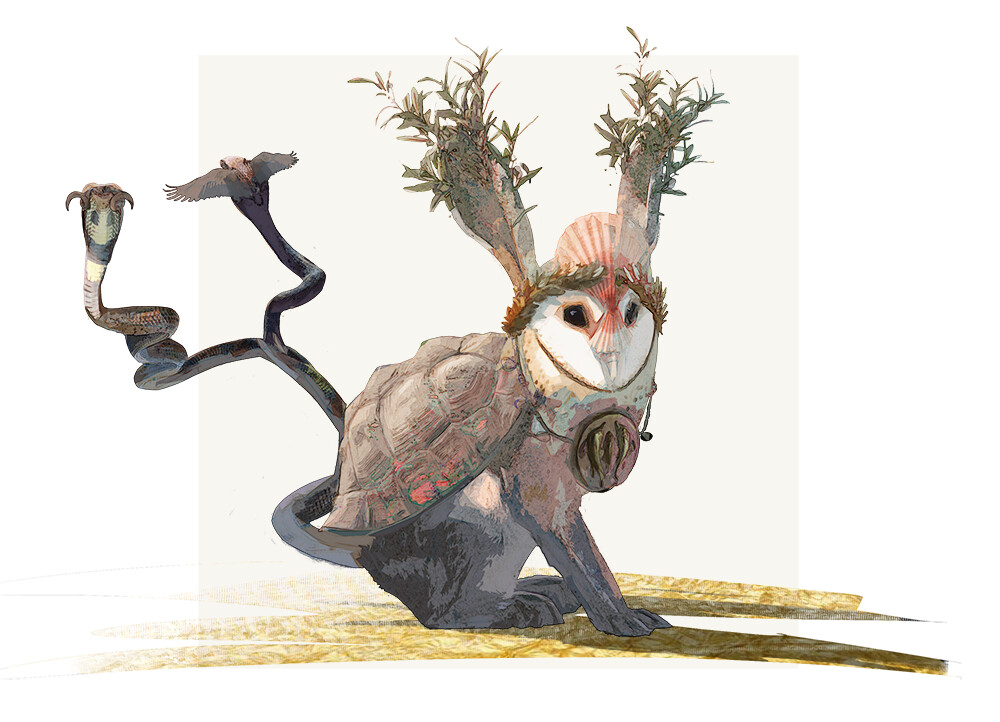
From the quickstart examples it appears that lists of Gifts, Passions and Descriptors will be provided to choose from, but they are not present in these 110 pages. However, what can be seen from the examples is very interesting. Among the most beautiful parameters of the characters there are certainly the Passions. Put melancholy, envy, madness, fury into play; they are powerful catalysts capable of generating a truly intense game. And we are not talking about just narrative parameters. For each of them there is a mechanical correlation in the game.
Let me add that there is also the Hybris parameter, which I was convinced I could find and which represents one of the most important elements of classic epic narrative (and not only, Rob Stark and Stannis Baratheon can confirm this).
Cosmos, the engine of the universe
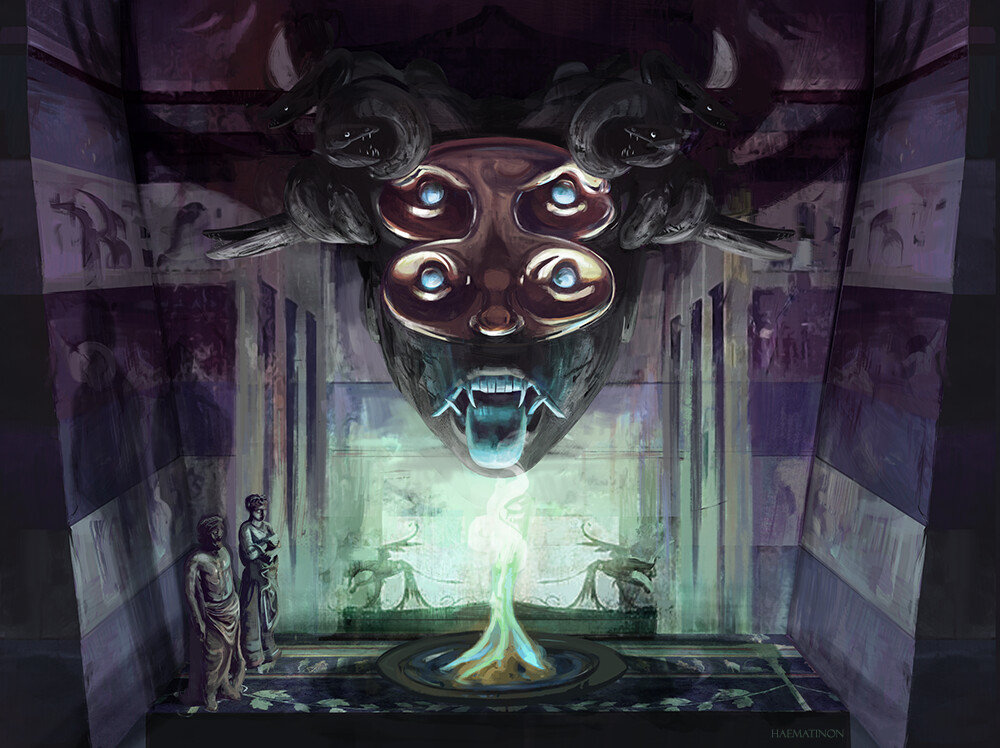
For the title of the paragraph I got caught. This is the game system, which is called Cosmos and it is presented in the fourth section of the quickstart.
As you may have guessed from this preview, Fragments of the Past is a light system, with all the pros and cons of being one. It is based on the d100 for the Attribute tests, with the aim of rolling under the base value. A d10 instead is rolled to test Will, Luck and Hybris.
The rules are relatively few, presented with extreme clarity. Then narrators are invited to start from the basic tests to define, judging on the circumstances, a more accurate resolution through bonuses and maluses. The indications are deliberately lax and it is needed a strong narrator who can manage the balance at the table. Blessings or curses, evoked by the players or granted by the narrator are another important element of a system that comes out of the flatness of repetitiveness only with the stimulus of the narrative thrust of those who use it. Gods must be invoked and blood must be spilt to stay alive. In short, it takes passion.
The Introductive Tragedy
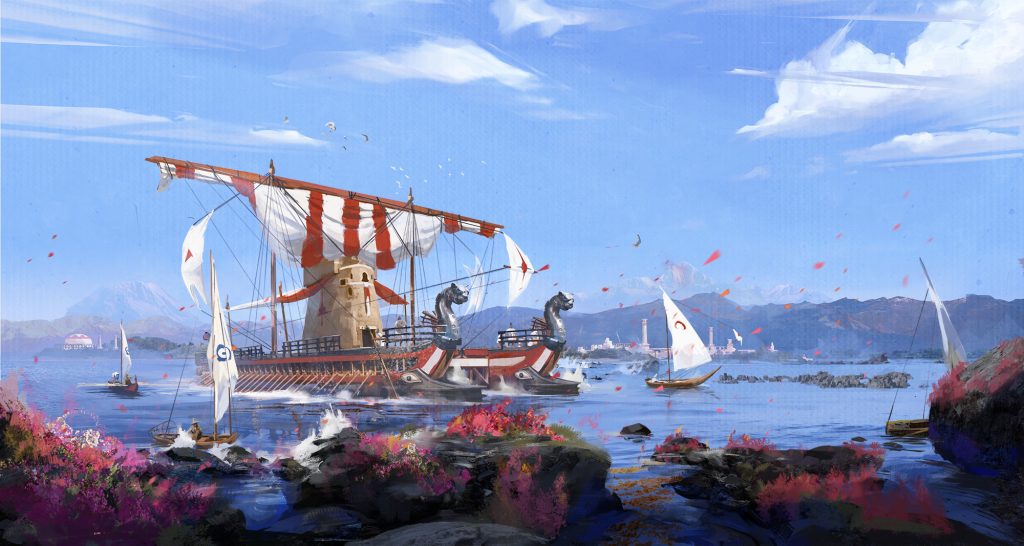
It didn’t seem right to call it an adventure. It is in fact more of a prologue to a theatrical text than a story. A lot of attention is paid to presenting the situation and the characters. There are conflicts, machinations, betrayals, suspicions. After that, it is not possible to predict how events will proceed, so there is only the description of the main plot points.
It is a tragedy that should last a couple of sessions and it gives a good idea of what the game world can be. In my opinion, the structure requires a narrator who is not necessarily an expert, but able to improvise and juggle plots that can take unexpected paths, as in many stories that can be told in Fragments of the Past.
Final Consideration about Fragments of the Past
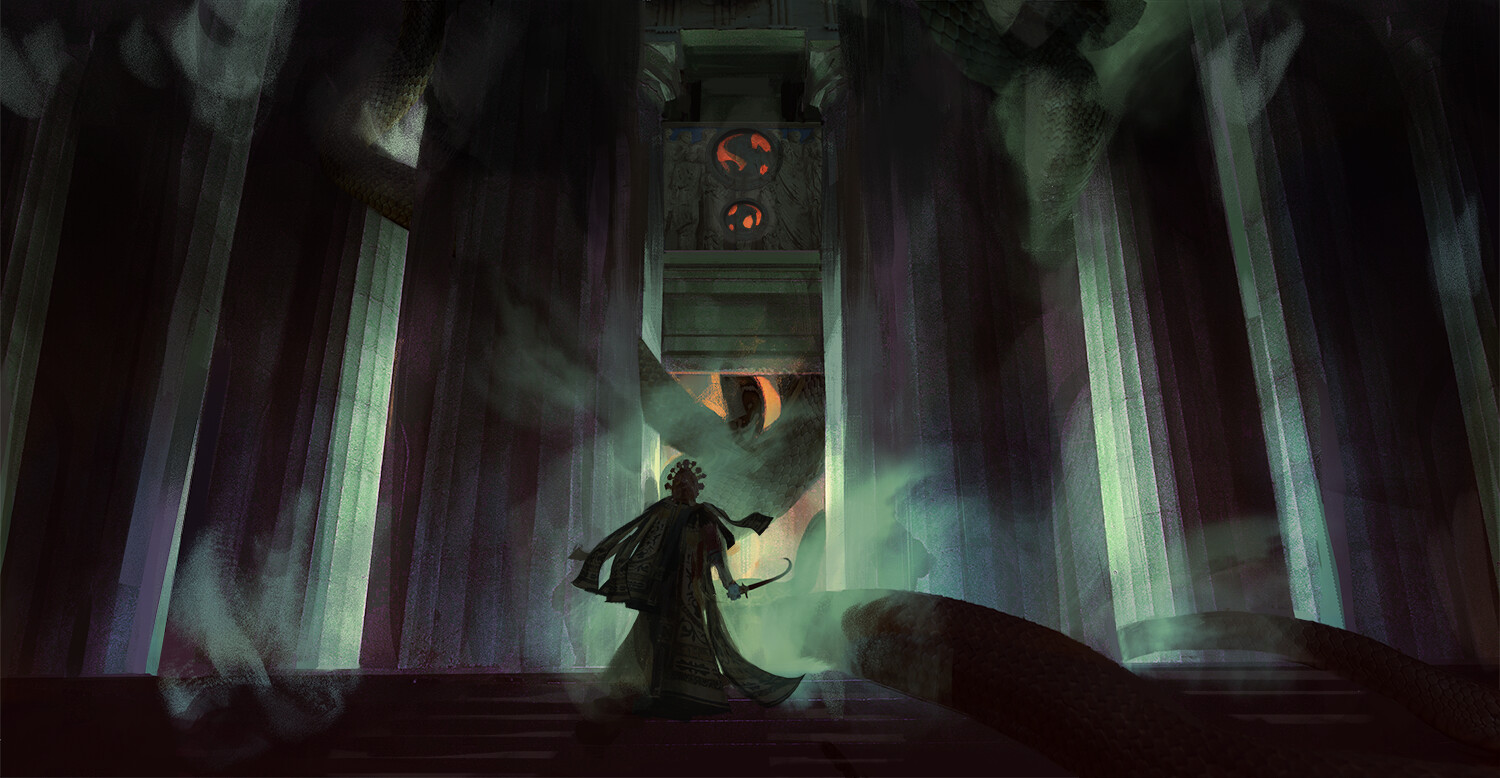
The product from a graphic point of view is top notch. It could also be purchased just to look at the amazing art. The world created by the author so far seems to me alive and vibrant, perhaps a little biased towards the Greek and Minoan civilizations. Of course, it must be assimilated before you can fully enjoy it, but the setting and the harmonic resonance with the classic epic are powerful magnets.
The game itself carries the risks of light systems: they need to be backed up by a story and active players who can fuel the narrative in any situation. From this point of view, the game setting helps.
Everything is in fact designed to channel the energies and attentions of the players towards the creation of narrative ideas. The survival or not of a character, the details of realism or the potential bugs of the system all take second place; before everything there is the passion that burns in the hearts of men, which illuminates the lives of the heroes and which makes their stories memorable.
After analyzing Fragments of the Past for this preview, I can’t wait for the full manual to come out, probably thanks to a Kickstarter project. Sign up for the newsletter if you want to stay up to date and take a look at the shop on the Fragment of the Past website. It is in fact already possible to buy the Narrative Artbook Enhanced Edition with all its magnificent illustrations!


Trackbacks/Pingbacks